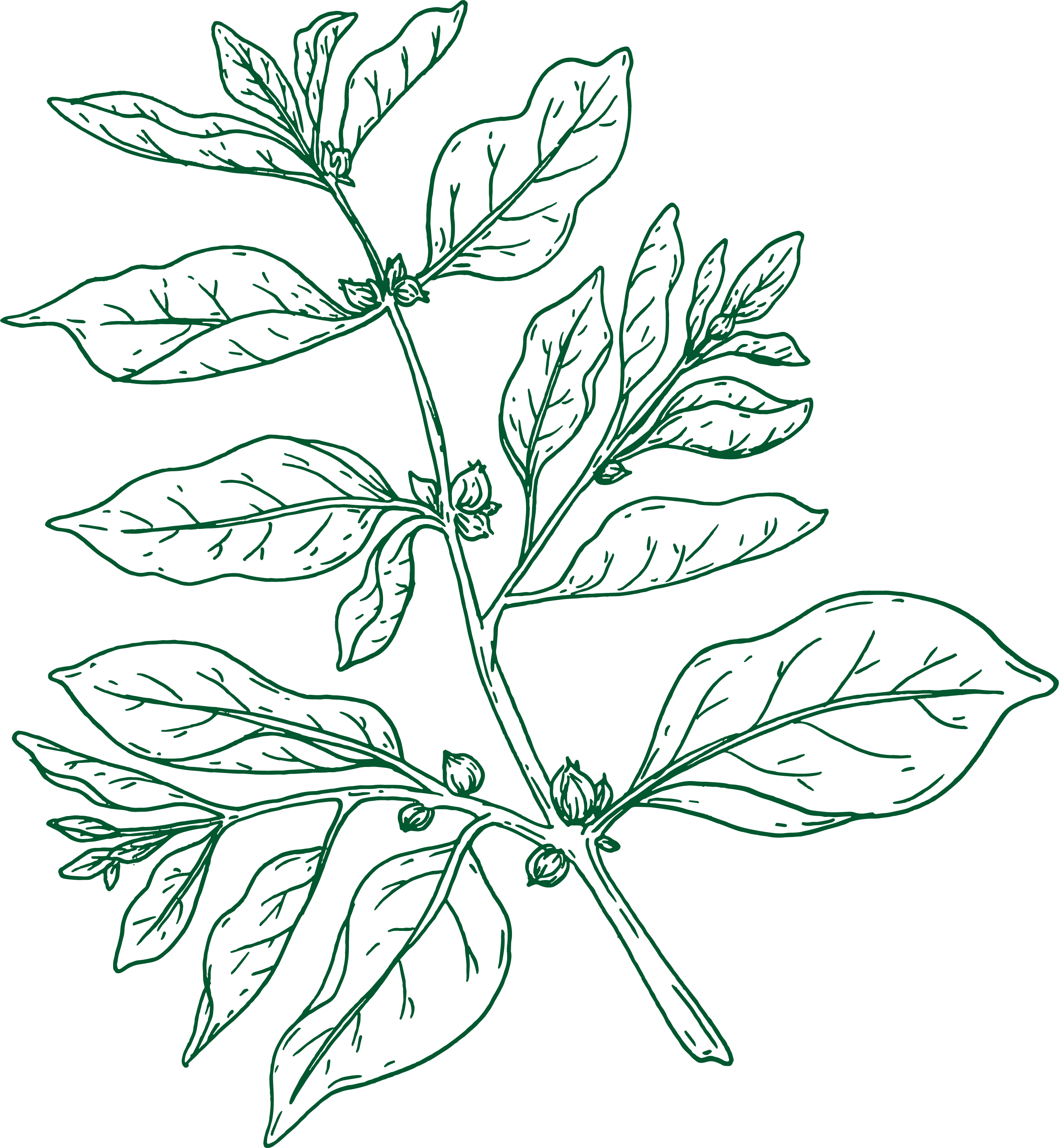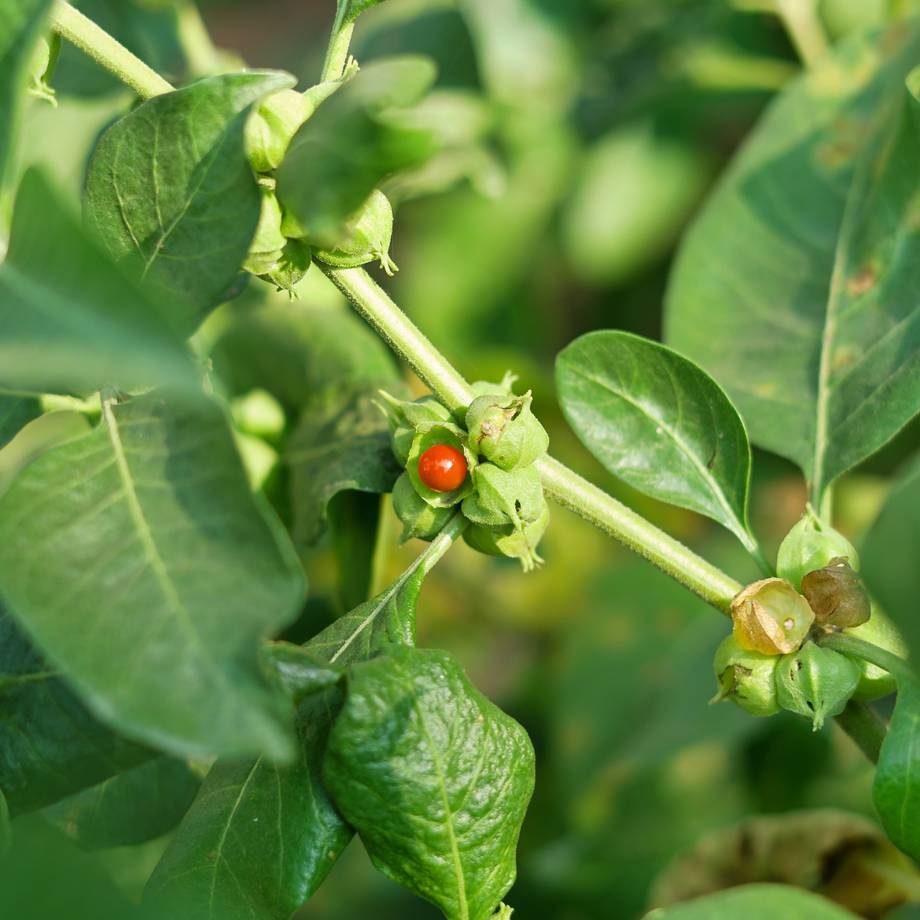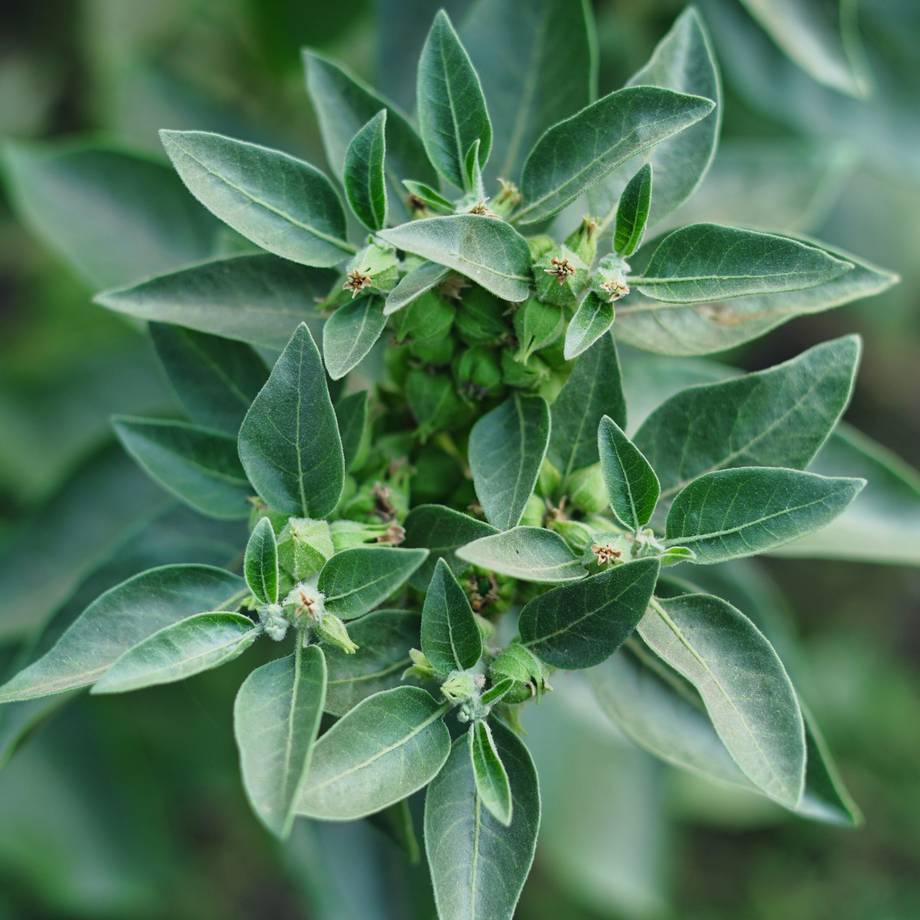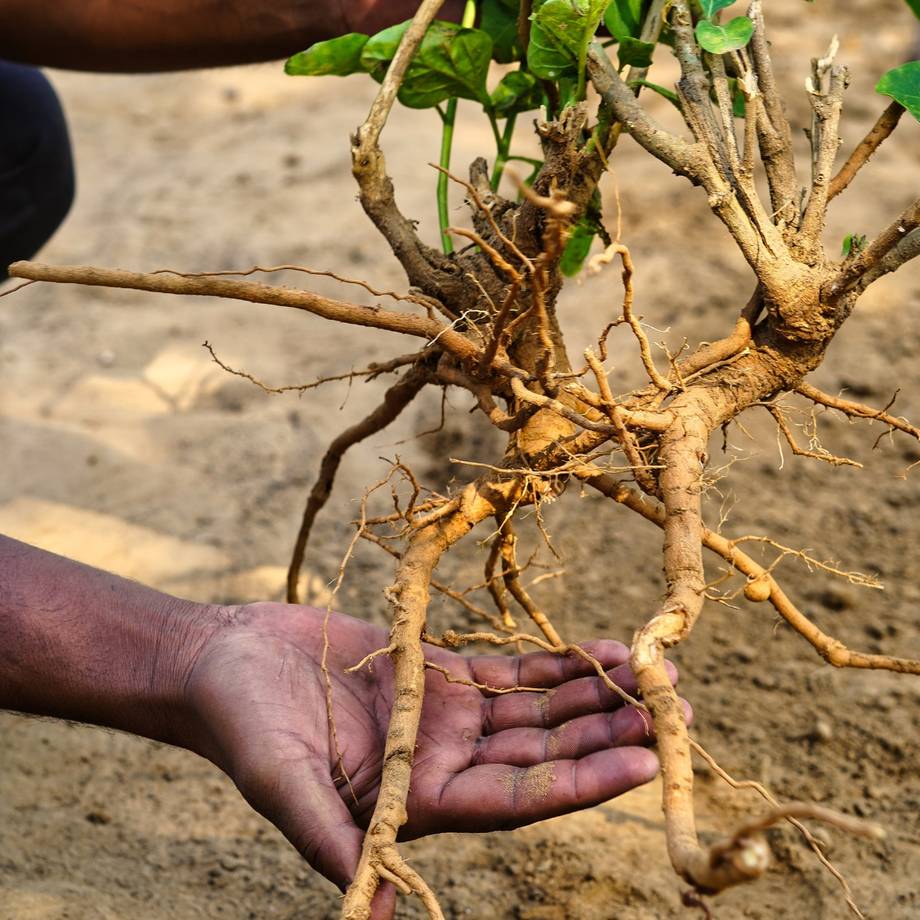
More Ashwagandha info
Meaning "Horse Essence" in Sanskrit, this powerful root embodies the vitality, strength, and resilience of a horse.

Ashwagandha has long been cherished in Ayurveda for its ability to support the nervous system, helping to cultivate a sense of calm and resilience in the face of everyday stressors Traditionally, it has been used to promote restful sleep, enhance endurance, and encourage overall well-being.*
Modern research classifies this herb as a calming adaptogen, helping the body adapt to occasional stress while promoting a balanced and peaceful disposition. Ashwagandha's role as an adaptogen may also support a balanced mood, and reproductive health, all while improving sleep quality. This herb is a favorite among those looking to navigate life’s daily pressures with a bit more steadiness and continues to be a trusted ally in modern wellness routines.*
Along with its calming effects, ashwagandha is also recognized as an ergogenic aid—herbs that may enhance physical performance by supporting muscle strength, endurance, and recovery. Whether used to unwind after a long day or to help sustain energy and stamina, this versatile root continues to be a valued ally for both mental and physical well-being. Ashwagandha also contains withanolides, which have been studied for their role in promoting stress resilience and overall well-being.”*

Ashwagandha has been cherished for thousands of years as a powerful tonic for longevity, vitality, and overall well-being. In Ayurveda, it is classified as a rasayana—a rejuvenating remedy meant to be taken regularly alongside a nourishing diet and mindful movement to restore balance and enhance quality of life. Traditionally, ashwagandha is simmered in milk or blended with ghee (clarified butter) in a preparation known as ghrita. When combined with other herbs, ashwagandha can also be tailored to support specific wellness needs.*
Beyond its well-known sleep-supportive properties, ashwagandha has a fascinating connection to dreams. It was traditionally believed to assist with dream recall, and even invite the spirit of horses into one’s dreams—an animal symbolizing strength, freedom, and connection to nature. According to legend, this revered root restores vitality by allowing us to become wild horses in our dreams, rekindling a sense of power and independence. Its name, "ashwagandha," translates to "smell (or essence) of the horse" in Sanskrit, a nod not only to its distinct aroma but also to its ability to promote resilience, stamina, and inner strength.*

Ashwagandha belongs to the Solanaceae family, which also includes tomatoes, peppers, eggplants and potatoes. It thrives in the warm, arid climates of India, the Middle East, and parts of Africa. It has a shrub-like growth, reaches a height of 30-150 cm (about 1 to 5 feet) on woody stems, and is covered with velvety leaves and small, five-petaled, greenish-yellow bell-shaped flowers. These flowers eventually develop into bright red berries, earning Ashwagandha the nickname "winter cherry." However, it’s the root—not the berries—that holds the plant’s powerful wellness benefits. The leaves are simple ovals with smooth edges, and their velvety quality comes from fine hairs on their surface which may help the plant reduce moisture loss and protect it from intense sunlight.
The medicinal part of ashwagandha is the root, particularly the lateral rootlets that branch off of the main taproot. The roots are thick and fleshy, growing deep into the soil to absorb moisture and minerals. They are typically harvested after six to eight months when their beneficial compounds, called withanolides, reach peak potency. This usually happens during the driest part of the season, when the plant naturally directs its energy downward. Known for its resilience, Ashwagandha thrives in dry, sandy soil, and is very drought tolerant, making it one of nature’s most adaptable herbal allies.
Additional Information
Important Precautions:
Ashwagandha should not be used in pregnancy or while breastfeeding, or in children under 12. Because of its sleep-promoting potential, herbalists don’t recommend mixing it with alcohol or sedative medication.
Legal Disclaimer:
This statement has not been evaluated by the Food and Drug Administration. This product is not intended to diagnose, treat, cure, or prevent any disease.
Become an Herb Nerd & Get 10% Off!
Herbal tidbits, DIY plant projects, exclusive discounts, and recipes to follow the seasons delivered straight to your inbox.

